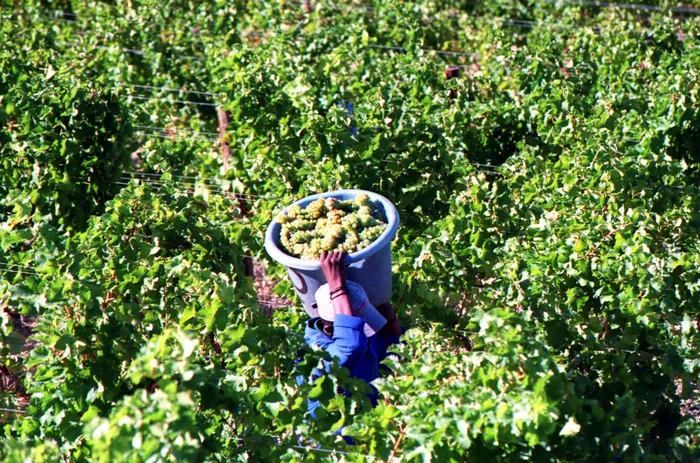South Africa's agricultural exports to the US surge despite looming tariffs
AGRICULTURE

Despite concerns about imminent US tariffs announced by President Trump, South Africa’s agricultural exports to the United States experienced positive growth in the second quarter of 2025.
Image: Denzil Maregele/Independent Newspapers
South Africa's agricultural exports to the United States have shown significant growth in the second quarter of 2025, against a backdrop of imminent tariffs announced by President Trump.
This surge in export figures has been celebrated by industry associations and government officials alike.
According to Wandile Sihlobo, chief economist at the Agricultural Business Chamber of South Africa (Agbiz), South Africa's agricultural exports to the US amounted to $161 million (R2.8 billion), reflecting a robust 26% increase from the same period in 2024.
"This is not a matter of base effects, but a better performance. And remember, this comes after another exciting quarter at the start of the year, when South Africa’s agricultural exports to the U.S. in the first quarter of 2025 were at $118m (R21bn), up 19% year-on-year," Sihlobo said on Monday.
The solid second-quarter figures are attributed to a combination of strategic export actions and favourable harvest conditions.
Sihlobo suggested that many exporters rushed to ship large volumes to capitalise on a temporary pause of the Liberation Tariffs, allowing them to thrust their products into the market before any tariff impacts could be felt.
This year has seen a bountiful fruit and wine harvest, with key export products including citrus, fruit juices, wine, nuts, and various fruits such as apricots, apples, pears, and grapes.
"The strong exports to the U.S. also continue to illustrate the importance of the U.S. market to the various industries of South Africa’s agriculture. Therefore, securing better tariff levels will be beneficial to the likes of citrus, nuts, ostrich products, table grapes, and wine industries, amongst others," Sihlobo said.
Sihlobo added that beyond the U.S. agricultural trade matters, we must focus on export diversification, and the starting point must be lower tariffs and simplified phytosanitary regulations in the BRICS countries, specifically China, India, Saudi Arabia, and Egypt. “We generally need greater access to the Middle East and Asian markets.”
Farming association TLU SA general manager, Bennie van Zyl, echoed this sentiment, acknowledging that the increase was a reflection of South Africa's existing African Growth and Opportunity Act (Agoa) agreement benefits.
"That is a natural process of an existing market where we still have the Agoa agreement and the benefits for our people to export to the United States. That for sure will not be the case after the 30% tariff increase," he said.
Dawie Maree, head of FNB Agriculture Marketing and Information, also expressed optimism about the numbers, noting that exporters were likely utilising the window period before tariffs take effect to maximise their shipping.
"There can be a couple of reasons, but mainly: Exporters (and importers) wanted to make use of the window period when the tariffs have not been effective yet. Thus, exporting as much as possible as fast as possible," Maree said.
"Secondly, it is also due to the high quality of our SA products, which is in demand in the US. Remember we are also counter-cyclical to the US with production of, for example, citrus, etc. There is still a lot of uncertainty regarding the deal that SA has put on the table, but in the meantime, exports are continuing, which is good for us as SA."
Minister of Agriculture John Steenhuisen praised the growth within the agricultural sector, stating that it was important to examine this performance with a forward-looking perspective.
"The recent imposition of a 30% tariff on our exports by the United States has brought to light the urgent need to diversify our export markets – and enhance our competitiveness to mitigate the economic impact of losing preferential trade access," he said.
"Our capacity to gain steady, long-term access to this important market continues to be a top priority."
BUSINESS REPORT